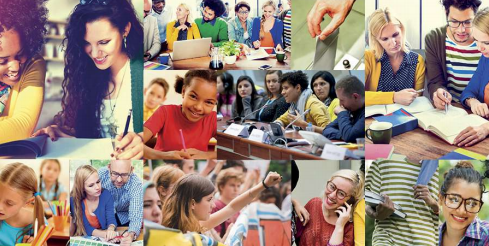Παρουσίαση/Προβολή

COMPETENCES FOR DEMOCRATIC CULTURE IN TESOL
(ENL558) - Κοσμάς Βλάχος, Ευδοκία Καραβά
Περιγραφή Μαθήματος
This workshop, which is delivered in a blended form, combining synchronous and asynchronous online sessions, aims at helping student teachers develop an awareness of how they can cultivate and sustain a democratic culture in their classes and at the same time introduce them to methodologies and practices that promote the development of intercultural communicative competence in English. The workshop comprises four modules, each one of which spreads in a week.
The first week student teachers are introduced to the main concepts of the workshop and specifically they become acquainted with the Competences for Democratic Culture (CDC). In this session, which takes place online synchronously, they explore the 20 competencies that constitute the teaching framework of CDC as well the 104 descriptors of learning outcomes, which they may use for creating learning aims and objectives for complete lessons and learning activities.
The second week student teachers explore the concepts of 'diversity' in the classroom and dealing with overcoming 'stereotypes', they study issues such as 'social cohesion', 'intercultural learning', 'intercultural awareness', 'intercultural communicative competence' and become familiar with European tools for promoting intercultural communicative competence, such as 'The European Language Portfolio' (ELP). This session is taught online asynchronously.
Similarly to the previous session, the third session is delivered online asyncronously. In this session student teachers delve into the benefits of early language learning, the characteristics of young learners, the characteristics of intercultural activities, what intercultural activities for young learners entail, and last how frameworks such as the story-based and the topic-based can be employed for developing intercultural competence in the young learners' classroom.
In the fourth session, which is taught online asynchronously, student teachers' attention is drawn to the context of secondary education. The issues discussed are: how teenagers learn, teenagers and identity development, methodologies and activities for developing intercultural competence with teenage learners of English, cross linguistic mediation, developing teenagers’ cross linguistic mediation skills, project based learning and connecting learners of English with online networking and intercultural projects.
By the end of the workshop student teachers will be able to:
- Define intercultural communicative competence and intercultural learning.
- Demonstrate an understanding of the different levels of student diversity in the classroom.
- Demonstrate an understanding of how different stereotypes can affect the teaching/learning process.
- Define intercultural activities for students.
- Name the characteristics of intercultural activities.
- Design story-based and topic-based lessons for the development of intercultural communicative competence in the young learners’ classroom.
- Explain how teenage language learners learn second/foreign languages and what kind of learning activities are appropriate for this age group.
- Develop intercultural competence with teenage learners.
- Define cross cultural mediation skills and design learning activities that promote these skills.
- Design project-based lessons and connected learning lessons for the development of intercultural communicative competence and democratic values.
To accomplish the above mentioned objectives, student teachers must follow the materials and plan of activities for each week as they are presented in units in the main page of the e-class for this workshop. The materials include papers to be studied, videos with e-lessons to be viewed, quizes to be filled and blog activities to be completed.
As regards evaluation in the workshop, the top score is 20 marks, which are distributed as follows:
- 5 marks are given to the quizes and the blog activities
- 15 marks are gained by the completion of an assignment (available in the assignment section of the e-class)
We wish you to enjoy the content of the workshop
Kosmas Vlachos & Evdokia Karavas
Ημερομηνία δημιουργίας
Παρασκευή 13 Αυγούστου 2021
-
Δεν υπάρχει περίγραμμα